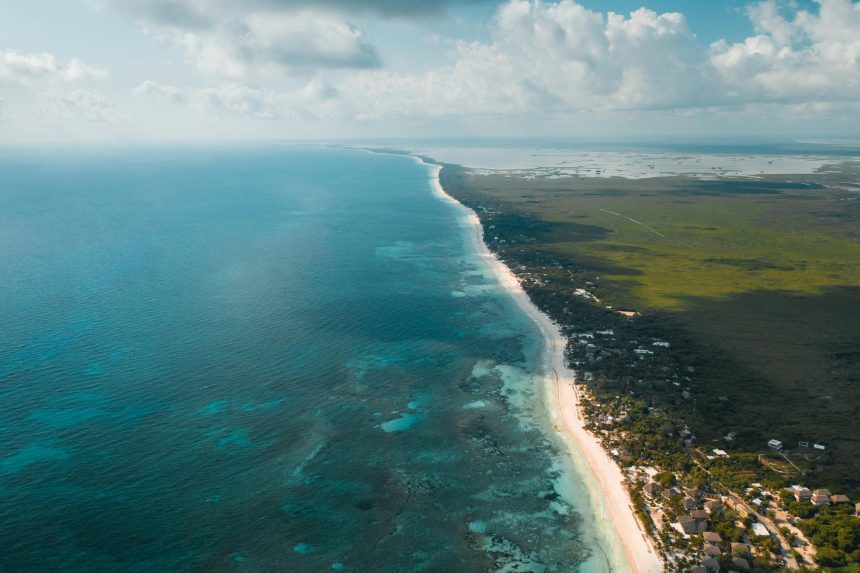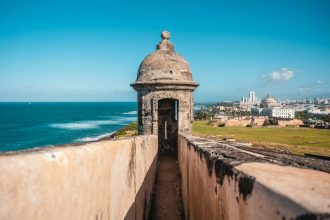Caribbean Weather Watch: Potential Storm Brewing Next Week
## Caribbean Weather Watch: Potential Storm Brewing Next Week
### Anticipating Tropical Activity in the Caribbean
The Caribbean is no stranger to tropical weather systems, and residents and visitors alike are always wise to stay informed about potential developments. As we look ahead to next week, forecasters are closely monitoring a tropical wave poised to enter the region. While it’s still early days, there’s a possibility this system could intensify and develop into a named storm, bringing with it the familiar concerns of heavy rainfall, strong winds, and coastal impacts.
### Understanding Tropical Waves and Their Potential
A tropical wave, also known as a tropical disturbance, is essentially an elongated area of low pressure that moves from east to west across the tropical oceans. These waves are the seeds of many tropical storms and hurricanes. As they travel over warm ocean waters, they can gather energy and organize, leading to potential strengthening.
#### Factors Influencing Development
Several conditions need to align for a tropical wave to mature into a significant weather event:
* **Warm Ocean Temperatures:** Tropical systems draw their energy from warm sea surface temperatures, typically above 26.5°C (80°F).
* **Low Vertical Wind Shear:** When winds at different altitudes blow at similar speeds and directions, it allows the storm to grow vertically. High wind shear can tear a developing system apart.
* **Moisture:** Ample moisture in the atmosphere is crucial for cloud formation and heavy rainfall associated with these systems.
* **Pre-existing Disturbance:** A tropical wave provides the initial spin and organization needed for development.
### What to Expect if a Storm Develops
Should this tropical wave organize and strengthen into a named storm, residents in the Caribbean can anticipate several potential impacts:
* **Heavy Rainfall:** This is often the most significant threat, potentially leading to flash flooding and mudslides, especially in mountainous areas.
* **Gusty Winds:** Even if the system doesn’t reach hurricane strength, it can still produce damaging wind gusts.
* **Coastal Flooding and Rip Currents:** Strong onshore winds can cause sea levels to rise, leading to coastal inundation and dangerous swimming conditions.
* **Disruptions to Travel and Tourism:** Flights and ferry services may be affected, and outdoor activities could be canceled.
### Preparing for Potential Tropical Weather
Staying prepared is key when tropical weather is a possibility. Here are some essential steps to take:
1. **Stay Informed:** Monitor official weather forecasts from reliable sources.
2. **Develop a Family Plan:** Discuss evacuation routes and communication strategies with your household.
3. **Assemble an Emergency Kit:** Include essentials like water, non-perishable food, medications, a flashlight, and batteries.
4. **Secure Your Home:** Bring in outdoor furniture, trim trees, and secure windows and doors.
5. **Know Your Evacuation Zone:** Understand if you are in an area that may require evacuation.
### Monitoring the Situation Closely
As the tropical wave approaches the Caribbean, meteorologists will be working diligently to track its progress and forecast its potential evolution. The National Hurricane Center (NHC) is the primary source for official advisories and warnings in the Atlantic basin. You can find valuable information and guidance on their website: [National Hurricane Center](https://www.nhc.noaa.gov/).
It’s also beneficial to consult local meteorological services for region-specific information. Understanding the science behind tropical weather can empower individuals and communities to make informed decisions and take appropriate safety measures. For a deeper understanding of tropical cyclones, resources like the [NOAA National Weather Service](https://www.weather.gov/) offer comprehensive educational materials.
### Conclusion: Vigilance is Key
While a definitive tropical storm is not yet confirmed, the potential for development next week warrants attention. By staying informed, preparing adequately, and heeding official advisories, residents and visitors in the Caribbean can best navigate any approaching weather systems.
###
Featured image provided by Pexels — photo by Mikhail Nilov







